- Fisheries Management in New Zealand
- Species
- Customary
- Aotea Great Barrier Temporary Closure 2023
- Astrolabe Reef s186A closure 2016
- Coromandel East temporary closure 2021
- Coromandel East temporary closure 2024
- Hauraki Gulf temporary closures 2024
- Kauaetangohia Mātaitai
- Maunganui Bay temporary closure
- Napier Reef temporary closure 2025
- Napier Reef temporary closure 2023
- Ōhiwa Harbour temporary closure 2024
- Ōmāui Mātaitai 2019-20
- Ruapuke Island Mātaitai 2024
- Taranaki temporary closure 2024
- Taranaki temporary closure 2022
- Tautuku Mātaitai 2019-21
- Te Māta temporary closure
- Tutukaka – Ngunguru temporary closure 2023
- Umupuia temporary closure
- Waiheke temporary closure 2021-24
- Waimārama temporary closure 2024
- Waimārama temporary closure 2020 -22
- Whale Island mātaitai 2024
- Whangaroa temporary closure 2021
- Fisheries policy & reform
- Fisheries plans
- Legislation and reviews
- Regulatory reviews
- Aggregation limits application 2024
- Aggregation excess limits EMA KAH 2020
- Crayfish Aggregation limit exemption 2016
- Deemed value review 2016
- Deemed value review 2021
- Deemed value review 2022
- Finfish bag limits review 2021
- Fiordland amateur regulations review 2022
- Papamoa Beach bylaw review 2018
- Seabird mitigation measures 2023
- Technical change proposals 2022
- Submissions by year
- North & South Islands submissions
- 2025 Submissions
- 2024 Submissions
- Aggregation limits application 2024
- Blue cod Marlborough Sounds review 2024
- Coromandel East temporary closure 2024
- Crayfish 1 management review 2024
- Crayfish 3 TAC review 2024
- Crayfish 7 and 8 review 2024
- Exception review for predated HMS 2024
- Extend coastal permits bill 2024
- Fast Track Approvals Bill 2024
- Hauraki Gulf temporary closures 2024
- Jack mackerel pilchard kingfish review 2024
- Kaikōura Pāua 3A TAC review 2024
- Kaikōura pāua reopening 2024
- Kina 1 review 2024
- Kina 3 TAC review 2024
- Kingfish 3 TAC review 2024
- Ōhiwa Harbour temporary closure 2024
- Pacific bluefin landing review 2024
- Ruapuke Island Mātaitai 2024
- Snapper flatfish elephantfish 7 review 2024
- Snapper Rig John dory 2 review 2024
- Snapper 8 TAC review 2024
- Southern bluefin landing review 2024
- Southern bluefin TAC review 2024
- Taranaki temporary closure 2024
- Waikato Regional Coastal Plan 2022-25
- Waimārama temporary closure 2024
- Whale Island mātaitai 2024
- 2023 submissions
- Aotea Great Barrier Temporary Closure 2023
- Coromandel scallop closure review 2023
- Crayfish 1 TAC review 2023
- Deemed values review SNA 2023
- Gurnard 3 TAC review 2023
- Industry Transformation Plan 2023
- Hauraki Gulf Fisheries Plan 2023
- Hauraki Gulf trawl corridors 2023-25
- Kina 1 TAC review 2023
- Kina dredging Tory Channel review 2023
- Marine Protection Bill 2023–25
- Napier Reef temporary closure 2023
- Pāua 2 Fisheries Plan 2023-24
- Pāua 2 TAC review 2023
- Red cod land-all catch review 2023
- Seabed mining inquiry 2023
- Seabird mitigation measures 2023
- Trevally 2 TAC review 2023
- Tutukaka – Ngunguru temporary closure 2023
- Waikato Regional Coastal Plan 2022-25
- 2022 submissions
- Blue cod 7 TAC review 2022
- Crayfish 1, 7 & 8 TAC review 2022
- Deemed value review 2022
- Fiordland amateur regulations review 2022
- Fisheries Amendment Bill 2022
- FMA 7 TAC review 2022
- Gurnard 3 TAC review 2022
- Habitats of significance 2022
- Hākaimangō-Matiatia (Northwest Waiheke) Marine Reserve
- Hāpuku Bass 7 & 8 TAC Review 2022/23
- Hauraki Gulf Marine Protected Areas 2022
- Kaikōura pāua reopening 2022
- Maunganui Bay temporary closure
- Northland area closure proposals 2022
- Pāua 5 Draft Fisheries Plan
- Rig 3 TAC review 2022
- Northland & Coromandel Scallop TAC Review 2022
- Tarakihi east coast TAC review 2022
- Taranaki temporary closure 2022
- Technical change proposals 2022
- Te Māta closure application
- Waikato Region Coastal Plan 2022
- Waimārama temporary closure 2020 -22
- Umupuia temporary closure 2008-2024
- 2021 submissions
- Blue cod 3 TAC review 2021
- Cameras on boats 2021
- Clive River dredging 2021
- Coromandel East temporary closure 2021
- Crayfish 1, 3, 4, 5 & Packhorse TAC review 2021
- Elephant fish 7 TAC review 2021
- Finfish bag limits review 2021
- Flatfish 2 TAC review 2021
- Gurnard 1 TAC review 2021
- Hāpuku-Bass 1 & 2 TAC review 2021
- Kaikōura pāua fishery reopening 2021
- Kingfish 8 Deemed value review 2021
- Snapper 8 TAC review 2021
- Southern bluefin tuna TAC review 2021
- Tarakihi east coast TAC review 2021
- Waiheke temporary closure 2021-24
- Whangaroa temporary closure 2021
- Yellow-eyed mullet 9 TAC review 2021
- 2020 submissions
- Aggregation limits kahawai, jack mackerel 2020
- Blue cod 5 TAC review 2020
- Crayfish 1, 3, 4, 7 & 8 TAC review 2020
- Crayfish ACE carry forward 2020
- Gurnard 7 TAC review 2020
- Kingfish 2, 3, 7 & 8 TAC review. July 2020
- Maunganui Bay temporary closure
- National Finfish Fisheries Plan 2019-20
- National Rock Lobster Management Group review 2020
- Northland scallop TAC review 2020
- Pāua 3 subdivision 2020
- Pōrae 1 TAC review 2020
- Sea Change Marine Spatial Plan 2014-21
- Snapper 7 TAC review 2020
- South Island trawl species review 2020
- Tautuku Mātaitai application 2019-21
- Waimārama temporary closure 2020 -22
- 2019 submissions
- 2018 Submissions
- 2017 Submissions
- 2016 Submissions
- Astrolabe Reef closure application
- Bluenose management review
- Coromandel Scallops
- Crayfish 3 Gisborne
- Crayfish management 2016
- Deemed values 2016
- Jack mackerel 3 management review
- John dory 7 management review
- Paua 7 South Island
- Quota aggregation limits exemption
- Scallops (SCA7) management 2
- Seabed mining Taranaki 2016
- Snapper 7 management review
- Surf Clam 7 review 2016
- 2015 Submissions
- 2014 Submissions
- 2013 Submissions
- 2012 Submissions
- 2011 Submissions
- 2010 Submissions
- 2009 Submissions
- 2008 Submissions
- 2007 Submissions
- Regional issues
- Aquaculture
- Bay of Plenty
- Hauraki Gulf
- Coromandel East temporary closure 2021
- Hākaimangō-Matiatia (Northwest Waiheke) Marine Reserve 2022
- Hauraki Gulf Fisheries Plan 2023
- Hauraki Gulf Marine Protected Areas 2022
- Hauraki Gulf trawl corridors 2023-25
- Marine Protection Bill 2023–25
- Ponui mussel farm proposal
- Sea Change Marine Spatial Plan 2014-21
- Te Māta temporary closure
- Umupuia temporary closure 2008-2024
- Coromandel scallop closure review 2023
- Waiheke temporary closure 2021-24
- Waikato Region Coastal Plan 2022
- Waikato Regional Coastal Plan 2022-25
- Marlborough and Tasman
- Northland
- Southland and Otago
- Marine protection
- RMA
- Research and reports
- Document Index
- Document Search
Symposium Speakers 2016
Introduction
A range of experts in economics, policy development, conservation and marine science were invited to the New Zealand Fisheries Symposium 2016. The Symposium was to be held over two days at Snells Beach, Mahurangi, north Auckland. Over 100 people attended the invitation-only event.
The keynote speakers were Daniel Pauly, Sea Around Us project, University of British Columbia, and Dr. Evelyn Pinkerton, Co-management and First Nations specialist, Simon Fraser University, British Columbia, Canada.
Topics covered over the two days included marine research, the success of co-management, economics, policy development, marine ecology, conservation, renewable natural resources, catch reconstruction and tourism opportunities.
Chair
Barry Torkington
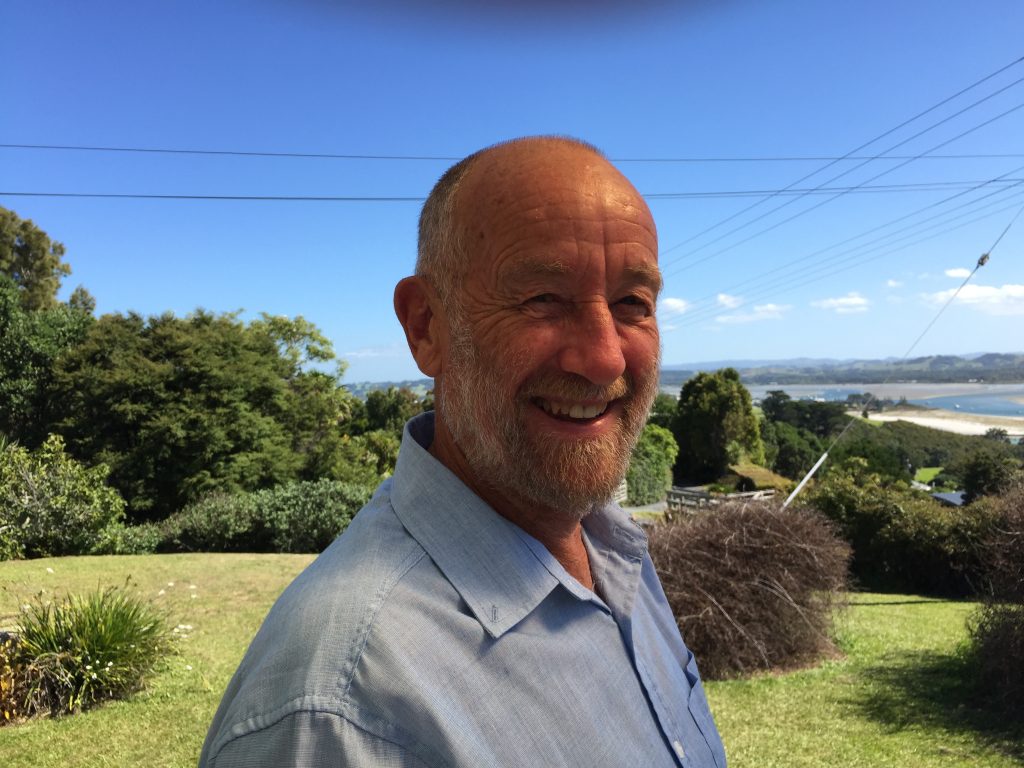
Barry Torkington has a background in commercial fishing and aquaculture. He served as a director of the local commercial operation, Leigh Fisheries Ltd, specialising in quality assurance and innovation. He has also been closely involved in New Zealand’s fisheries management for over 30 years and contributed to two management plans for the largest snapper fishery in New Zealand, Area 1. Barry continues to have local and overseas business interests specialising in innovation and maximising utilisation of marine resources.
Barry’s key attributes are his clear thinking, his ability to analyse policy and management proposals and articulate the core issues. These skills mean Barry is highly sought-after by commercial and non-commercial interests seeking clarity and an independent view.
For the past five years Barry has committed his time and resources to programmes that aim to restore abundance and productivity to our inshore marine environment. He has been a valuable advisor to the New Zealand Sport Fishing Council and LegaSea teams.
Barry’s all round skills make him the ideal Chair for the New Zealand Fisheries Symposium 2016.
Speakers
Dr. Daniel Pauly
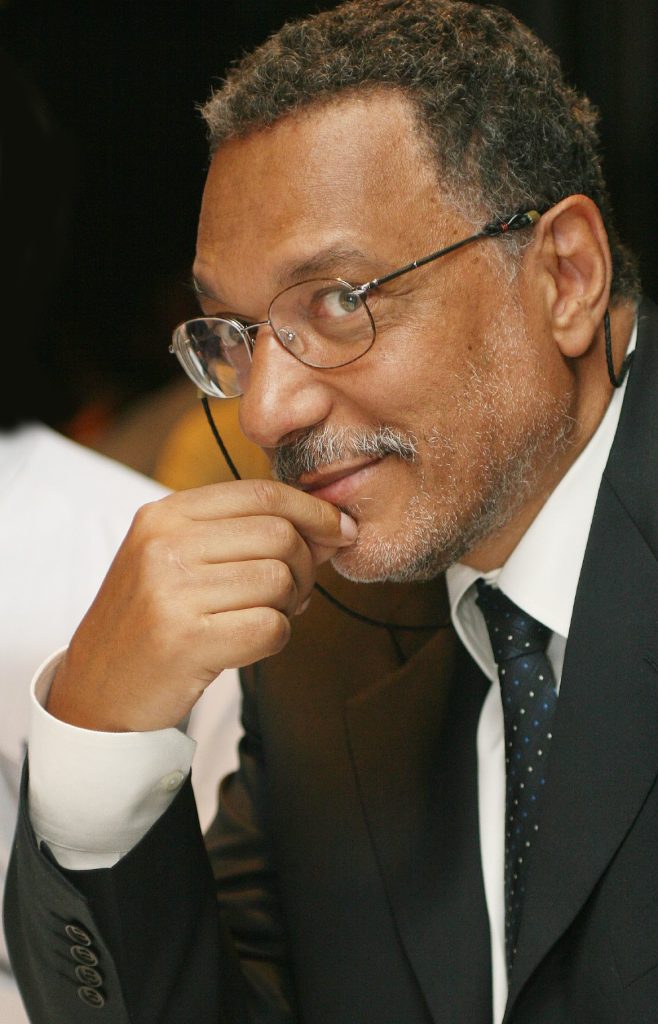
Dr. Daniel Pauly is a French born marine biologist well known for his work in studying human impacts on global fisheries. He is a professor and the project leader of the Sea Around Us project at the University of British Columbia Fisheries Centre. He also served as the Director of the UBC Fisheries Centre from 2003 to 2008.
Through the 1990s Daniel’s work focused on the effects of overfishing. He developed the concept of ‘shifting baselines’ in 1995, and has authored several books and more than 500 scientific papers.
Daniel’s work has earned him multiple, international awards. In a 2009 article he compares today’s fisheries to a global Ponzi scheme.
Daniel is very pleased to be attending the New Zealand Fisheries Symposium 2016. He will share his insights and details of the Sea Around Us project reconstructing catch in hundreds of countries, including New Zealand.
Dr. Evelyn Pinkerton
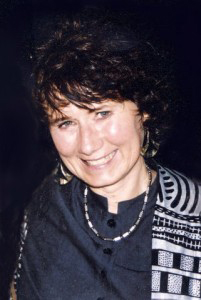
Dr. Evelyn Pinkerton is a maritime anthropologist who has integrated common property theory and cultural/political ecology in considering the role communities play in the management of adjacent renewable natural resources.
She has played a role in developing the theory and practice of power-sharing and stewardship through co-management agreements. Beginning with the introduction to her 1989 edited volume Cooperative Management of Local Fisheries (UBC Press), she has been generating middle-range theoretical propositions about the conditions under which co-management is likely to arise and endure.
Evelyn has published over 40 peer reviewed articles on fisheries and forestry co-management arrangements. This work as since evolved into analysis of the developmental sequence of types of co-management rights and activities.
Evelyn is looking forward to sharing her knowledge and understandings with other speakers and participants in the New Zealand Fisheries Symposium 2016.
Rob Southwick

Rob Southwick is President and founder of Southwick Associates. Rob is based in Florida, USA, and for the past 25 years he has been the leader in wildlife economics, statistics and market evaluations for states and the sportfishing and hunting/shooting sports industries.
Rob is a graduate of the Univeristy of Florida. He is supported by a staff of eleven talented full-time experts plus numerous part-time and contracted associate researchers and support staff.
Rob and his team have completed the most comprehensive study to measure the contribution that the recreational fishing industry makes to the New Zealand economy. The New Zealand Marine Research Foundation commissioned the research and chose Rob on the basis of his track record to produce quality results.
Rob is excited to be presenting the findings of the New Zealand study at the New Zealand Fisheries Symposium 2016.
Dr. Glenn Simmons

Dr. Glenn Simmons has more than 20 years of executive management experience. His doctoral research focused on SME growth and entrepreneurial capability in the seafood industry.
Glenn’s investigation into human rights abuses and the use of forced labour on board New Zealand foreign chartered fishing vessels instigated a Ministerial Inquiry, a major shift in government policy, and the enactment of a law requiring all foreign charter vessels to be reflagged to New Zealand by 2016.
Glenn is attending the New Zealand Fisheries Symposium 2016 to talk about the work that he, Daniel Pauly and others worldwide are doing to reconstruct the real marine catches for New Zealand, between 1950 and 2013. Glenn is committed to this work because he recognises the need to acknowledge the past and apply those lessons so the seafood industry can capture more value from their future fishing activities.
Bruce Hartill
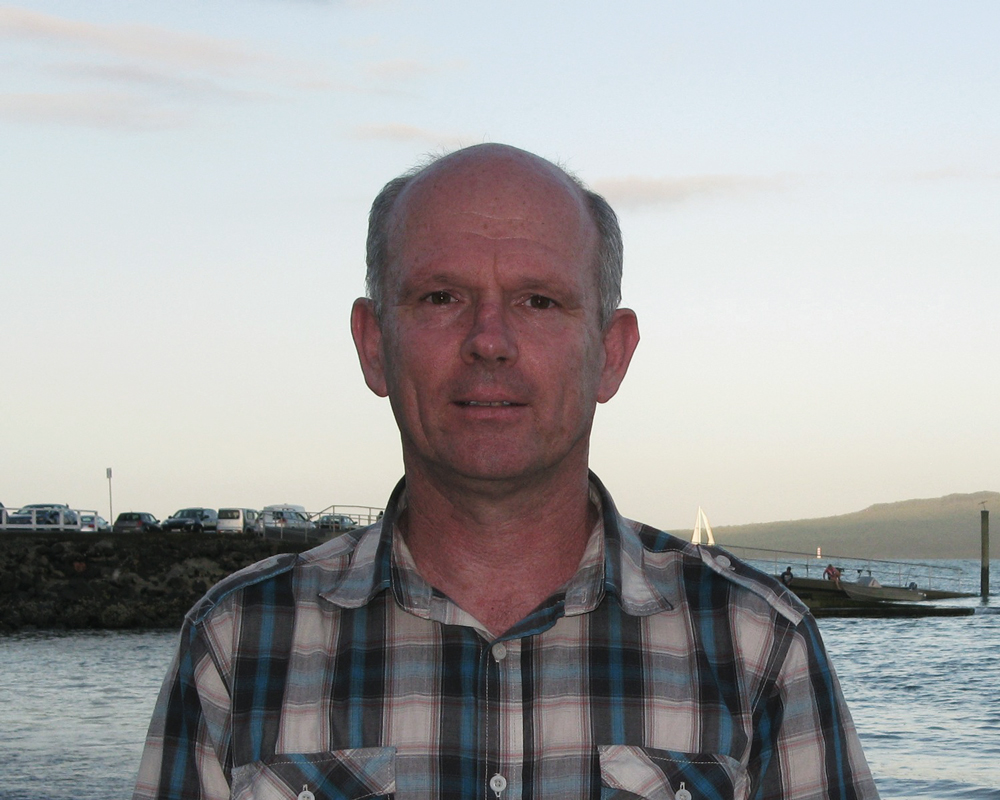
Bruce Hartill is a fisheries scientist at NIWA. He has worked on recreational and commercial fisheries for almost 25 years. For the past 15 years he has been developing survey techniques to monitor trends in recreational catch and effort, and there is growing international interest in the techniques that he and others in New Zealand have developed.
Almost all of the research done by Bruce is commissioned by the Ministry for Primary Industries (MPI), including aerial and boat ramp surveys to estimate levels of recreational harvest, regular sampling of amateur catches to monitor the state of the kahawai fishery, and the use of web cameras to monitor long term trends in recreational effort.
Bruce is a regular member of science working groups convened by MPI, which peer review all work undertaken on their behalf.
Bruce is looking forward to sharing his experiences, to assist our understanding of recreational harvest, at the New Zealand Fisheries Symposium 2016.
John Holdsworth
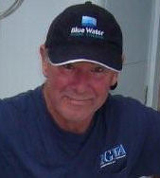
John Holdsworth is a director of BlueWater Marine Research, established in 1997 to provide high quality fisheries management advice and marine research solutions to a range of clients. Those clients include government, research institutes, NGOs, national and regional fisheries organisations.
John has more than 30 years experience in fisheries management and research. Projects have included harvest and economic surveys of recreational fishers, gamefish tagging programmes with conventional and satellite tags, and biological and catch-at-age studies for striped marlin and yellowtail kingfish.
John has been appointed to represent the New Zealand Sport Fishing Council at the Ministry for Primary Industries’ science working groups. In particular, the working groups for Highly Migratory Species (HMS), Northern Inshore Finfish, and the Marine Amateur Fisheries Working Groups, which peer review Ministry funded work in these fields of interest.
John’s ability to translate complex issues into simple concepts makes him a valuable asset to the NZSFC’s fisheries management team.
Away from fishing, John enjoys living in rural Northland and sailing his yacht ‘Penguin’ around the northeast coast. He is currently the Commodore of the Tutukaka South Pacific Yacht Club.
Anthony McNamara
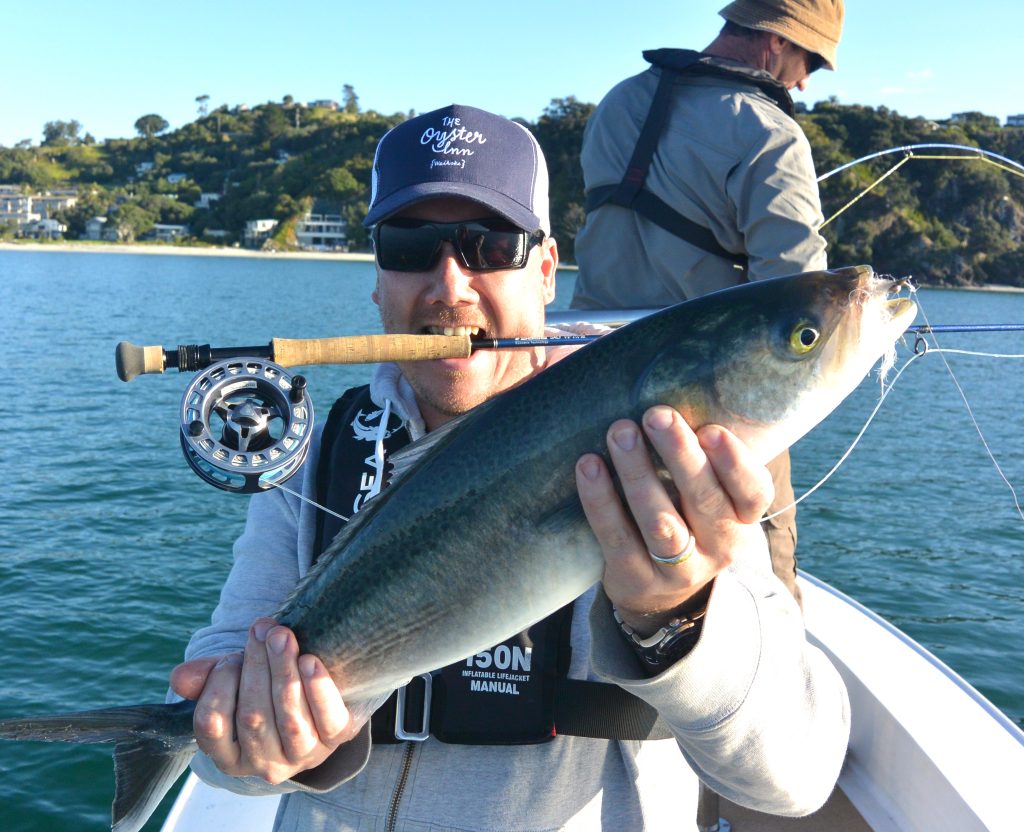
Chef Anthony McNamara specialises in crafting seafood meals for customers at the high-end establishment the Oyster Inn, on Waiheke Island in the Hauraki Gulf. Oyster Inn customers love being able to stay on the Island, enjoy the wineries, go fishing and have Anthony cook their catch to perfection.
Anthony has more than two decades of experience as a chef, owning quality restaurants worldwide. He is skilled and passionate about creating taste sensations using kaimoana sourced locally.
He is a strong believer that New Zealand needs abundant inshore fisheries to stimulate a vibrant tourist industry and provide much needed employment opportunities on the Island and mainland.
Anthony joins the lead group of speakers at the New Zealand Fisheries Symposium 2016 to share his knowledge and experiences.